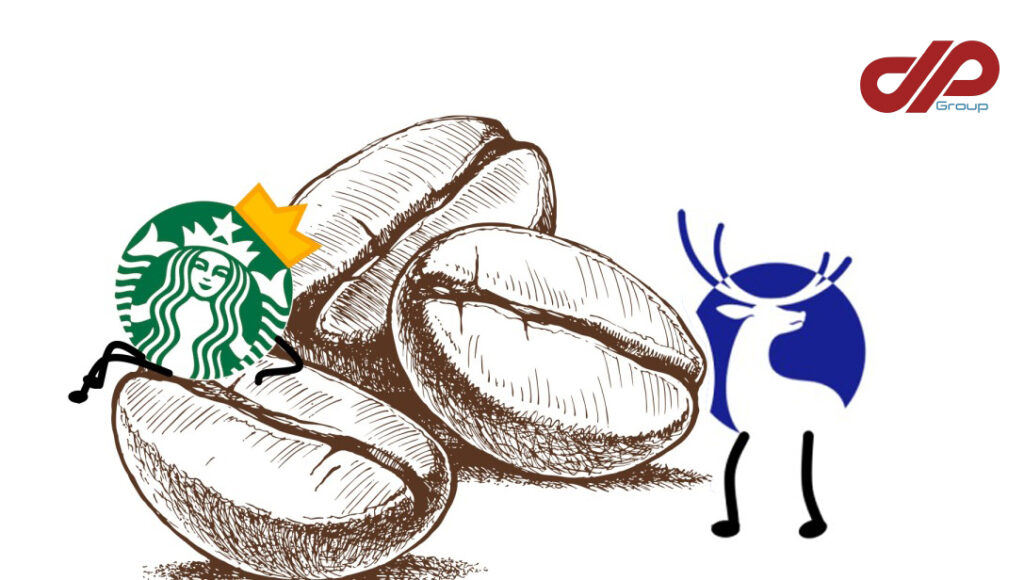Recently, a blue toned coffee brand has entered into the Chinese coffee market at a rapidly expanding rate. White-collar workers from first-tier and second-tier cities shall be familiar with this emerging coffee brand which has the elegant name: Luckin Coffee,along with the Chinese name of Rui Xing.While people have been enjoying the taste of Luckin Coffee, the new coffee brand has already opened over 500 branches in 13 cities throughout China.
However, most surprisingly, Luckin Coffee has issued a public letter to Starbucks on 15th May,2018, claiming that Starbucks is involved in monopolistic practices in the Chinese market. The open letter writes, Luckin Coffee has encountered the following problems in its developing process:
- Starbucks has signed many contracts with property companies which contain an exclusivity clause and due to the exclusive-lease contracts with Starbucks, they can not rent vacant shops to Luckin Coffee. Starbucks continually requires Luckin Coffee’s suppliers to choose between the two coffee companies. In practice, many of Luckin Coffee’s suppliers are the same as Starbucks’,and recently many suppliers of machine equipment, packages and food materials have claimed that Starbucks has asked them to stop providing supplies for Luckin Coffee and thus far Luckin Coffee has since received notifications from their suppliers that they will stop supplying their goods to the company.
- Luckin Coffee claims that the above approaches of Starbucks not only influence the normal operation of Luckin Coffee, but they also damage the environment for fair competition. Starbucks is suspected to be in violation of Article 14 and Article 17 of <Anti-Monopoly Law of the People’s Republic of China>. Luckin Coffee has entrusted a law firm to proceed with the above issues to the monopoly enforcement agency and file a formal lawsuit to the relevant people’s court.
The attorney agent of Luckin Coffee says, the survey data from an authoritative organ of the survey Euromonitor International shows that the market share of Starbucks in the Chinese coffee service is 58.6%, thus it holds a dominant market position in coffee service market especially in the coffee chain service market. According to Article 14 of <Anti-Monopoly Law of the People’s Republic of China>: An operator who holds a dominant market position is prohibited from making an “exclusive purchase agreement” with trading counterparts; And according to Article 17: An operator who holds a dominant market position shall not restrict trading counterparts to trading only with the said operator without justified reasons. He believes that Starbucks certainly holds a dominant market position and that reaches a monopoly.
Now the case has been put on file to the courts and enters into a legal proceedings.
D’Andrea & Partners will keep you posted about this news; for any further information, please write to info@dandreapartners.com






